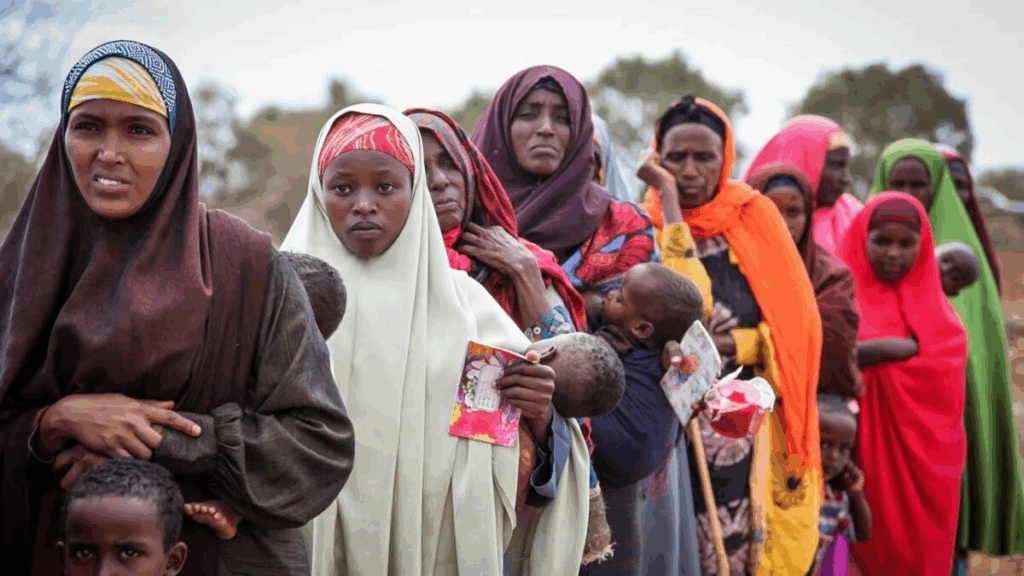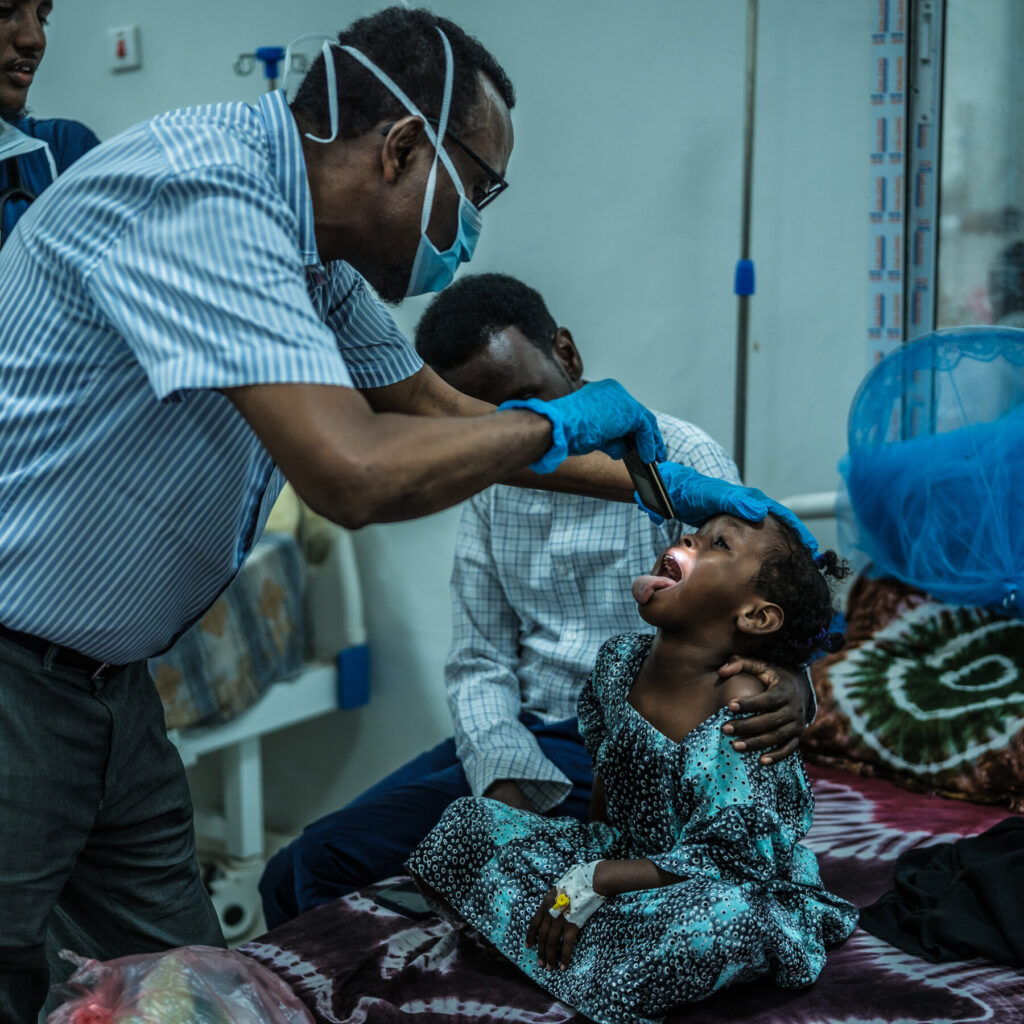Diphtheria outbreak in Somalia turns to a harsh killer this year, taking children from their families.
Hospitals in Mogadishu are struggling to cope as hundreds of new cases are reported each month.
Diphtheria outbreak in Somalia Took Salman and Hassan From Their Mother
In the outskirts of Mogadishu, Qurraisha Mukhtar has endured an unimaginable loss.
Her 2 children, Salman and Hassan, died after developing a high fever, swollen necks, and short, gasping breaths.
Their mother tried traditional remedies at first, but as their condition got worse, she took them to the city in a three-wheeled taxi — too late to save them.
This heartbreaking story reflects the real face of a growing diphtheria outbreak in Somalia, a disease that once nearly eradicated but now returning with bad consequences.
A Disease Returning in Africa
Diphtheria is caused by bacteria that release toxins.
It forms thick gray membranes in the throat and tonsils that can block breathing and cause suffocation — particularly for small children.
Though easily preventable with vaccination, diphtheria has resurfaced in several conflict-affected regions, including Somalia, Sudan, Yemen, and Chad, where healthcare systems are fragile and vaccine coverage is alarmingly low.
Diphtheria Outbreak in Somalia: 1000 Cases in 2025 Alone
At Demartino Hospital in Mogadishu, the main treatment center for diphtheria, doctors report seeing nearly 1,000 cases in 2025, compared to just 49 last year.
About 80% of patients are children.
The pediatrician, Dr. Mohamud Omar said:
“Most come in too late, because families live far away or cannot afford transportation.
Some have lost more than one child.”

Main Reasons for Diphtheria Outbreak in Somalia
The recent diphtheria outbreak in Somalia is fueled by a combination of war, climate change, and poverty. Decades of conflict have crippled the country’s healthcare infrastructure.
While repeated droughts have displaced millions of families from rural areas into overcrowded settlements.
These conditions make the spread of infectious diseases almost inevitable.
Many Somali families, like Ms. Mukhtar’s, have lost access to regular immunization services.
Although she tried to vaccinate her 12 children.
The lack of clear records and her inability to read made it hard to keep track of who received which dose.
Fear and Misinformation
Other parents, like Amina Hassan, say that fear and misinformation about vaccines have contributed to their children’s vulnerability.
“After my oldest child had a bad reaction to an injection, my husband refused any more vaccines,” she said. “Now three of our children are fighting for their lives.”
Regional Health Emergency
Diphtheria outbreak in Somalia mirrors a wider regional health emergency.
Countries such as Nigeria, Bangladesh, and Venezuela have also reported rising infections in recent years.
Experts say that global vaccine hesitancy and the disruptions caused by the Covid-19 pandemic have contributed to the return of diseases once thought to be under control.
Somalia is now the first country to apply for new funding from Gavi, the Vaccine Alliance, to introduce additional diphtheria booster doses.
These are planned for children at ages two, four to seven, and nine to fifteen — an essential step toward stopping the epidemic’s spread.
Despite the Despair, Hope Remains
Doctors in Mogadishu warn that the country’s fragile healthcare system cannot fight the outbreak alone. The loss of international aid, particularly U.S. funding cut in recent years, has left hospitals struggling to pay for medicine and equipment.
As malnutrition rates rise due to food insecurity, more children are becoming vulnerable to severe infections like diphtheria.
Despite the despair, hope remains.
The Somali Ministry of Health and international partners are now working together to increase awareness, restore vaccination programs, and strengthen disease surveillance.








